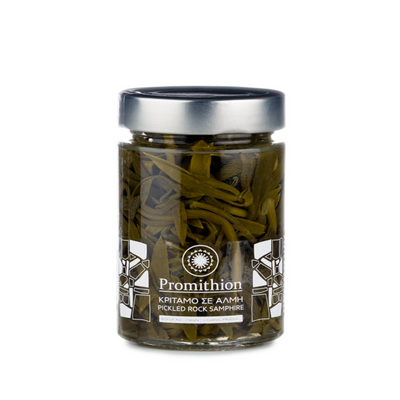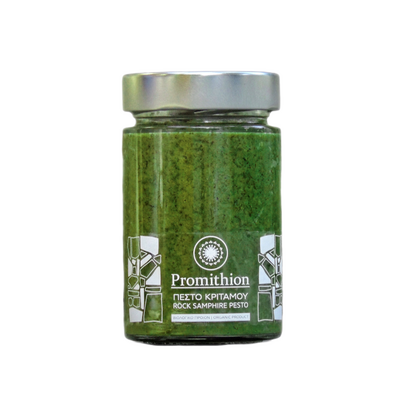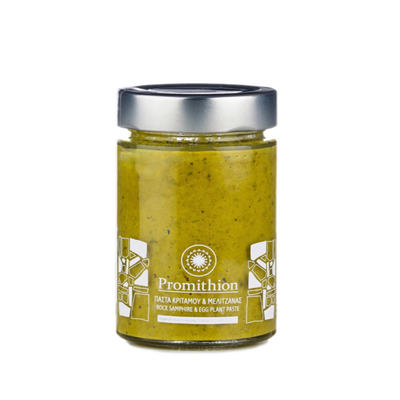The Health Benefits and Uses of Rock Samphire / Sea Fennel
By healthbenefitstimes.com
Health Benefits of Rock Samphire
A staple in the Mediterranean diet and especially in the Blue Zone islands of Sardinia and Ikaria. But let’s discuss the health benefits of this vegetable in more detail and improve our health:
1. Aids in Digestion
Rock samphire is a natural source of dietary fibre; rock samphire can do wonders for the body’s digestive system. Dietary fibre is able to bulk up the stool so that it can pass more easily through the digestive system without causing constipation or discomfort. Fibre help to reduce inflammation in the gut and guarantee that nutrient uptake is as efficient as possible.
2. Improves Bone Health
Rock Samphire is a very rich source of calcium, which is one of the benefits of adding this sea vegetable to your diet. With a regular intake of calcium, you are also enhancing your body’s intake of iron, which is necessary for good circulation in the body. More importantly, the calcium intake will keep your bones strong and durable as you age. Bone mineral density naturally drops as we grow older, so increased levels of calcium are necessary to remain youthful and healthy.
3. Antioxidant Properties
Fucoidans found in sea vegetables have antioxidant effects that make them very important for human health. Adding samphire to your body can help in a wide range of illnesses, ranging from skin conditions to cancer, as oxidative stress from free radicals comes in many forms. Fucoidans can help to neutralise that threat and keep your body protected from any would-be pathogens or external attacks.
4. Regulates Sleep
Magnesium doesn’t get much credit in the mineral world, but it can have measurable effects on the hormone balance, neurotransmitter production, and general quality of life for many people. Rock Samphire happens to be very rich in magnesium and many people suffer from magnesium deficiency without even knowing. If you suffer from insomnia or regularly have restless nights, it could be a sign that your body’s natural rhythms are out of whack. Magnesium is ideal for rebalancing your circadian rhythms and giving you a good night’s sleep.
5. Reduces Inflammation
There are many inflammatory conditions that can affect the body, ranging from arthritis and gout to hemorrhoids and infected wounds. Anti-inflammatory nature of samphire has made it a valuable herbal remedy, both when topically applied and consumed. It can help to ease pain and soothe swelling and inflammation, and even cause fevers to break.
6. Boosts Immune System
Vitamin A and C are not only essential vitamins for processes throughout our body, but they also have a substantial effect on the immune system. Vitamin C stimulates the production of white blood cells, which are the first line of defence for the body. Additionally, both these vitamins function as antioxidants and are capable of neutralising free radicals and stopping them before they can cause chronic diseases and oxidative stress.
7. Weight Loss
Extremely low calorie and low-fat content of Rock samphire is good news for anyone who has been struggling to keep their diet in check. Additionally, the dietary fibre in samphire works to optimise excretion and nutrient intake. It helps in making you feel full, by suppressing the ghrelin hormone in the body. When combined, this can lead to less snacking, more energy, and a lower caloric intake to help you shed the pounds.
8. Reduce the Risk of Cardiovascular Disease
Frequency of cardiovascular disease seems to be going up year after year, with a significant amount of new cases having been traced to a deficiency of dietary potassium. Potassium is known to counter the effects of excess sodium in order to normalise blood pressure by decreasing the tensions in the walls of blood vessels. Regular Rock samphire intake is one way to get enough potassium and it may help lower systolic blood pressure (especially in people with pre-existing high blood pressure), lower bad cholesterol level, regulate heartbeat and help keep cardiovascular diseases in check.
9. Enhance Muscle Contraction
Rock Samphire consists of sodium, an important nutrient that gives the muscles the ability to contract, even though we typically get sodium from a range of other foods. Dietary sodium in samphire assists nerve cells in sending electrical signals so that the muscles can contract hence, an absence of sodium will prevent the nerve cells from establishing a communication with muscle fibres. This may finally result in muscle twitching hence; a healthy diet should include samphire as it possibly can put an end to muscle weakness. That’s not to exclude the presence of potassium, which exerts a balancing effect on sodium and also promotes normal contractile processes of muscles and blood vessels.
10. Defend the Body from Pathogens
White blood cells are the body’s first line of defence which stops harmful disease-causing invaders before they are able to cause infection. Rock Samphire has a good amount of Vitamin C which enhances the rapid production of white blood cells thus, safeguarding the body during flu season or when likely to be compromised.
11. Assist In Blood Circulation
Iron is important for metabolism and the production of red blood cells which further encourages growth and maintains health. Moderate amount of dietary iron in Rock samphire may assist iron in the transportation of oxygen from the lungs to the rest of the body and a reduction in the risk of diseases such as anaemia.
 12. Increase Beneficial Bacteria in the Gut
12. Increase Beneficial Bacteria in the Gut
Beneficial bacteria play important roles in the digestion and absorption of food. Regular consumption of Rock samphire may be one of the best ways to boost beneficial bacteria naturally since it is rich in dietary fibre. Ensuring we consume enough of this dietary fibre helps ensures that these good bacteria are constantly nourished, allowing them to neutralise any damage from harmful microbes and improve the performance of the immune system. These bacteria may also increase the digestion of food and prevent conditions that allow for growth of harmful bacteria.
13 Promote Repair of Worn Out Tissues
Recovery from tissue damage is more of a repair process than a regenerative one and so, to efficiently recover from damage to the cells, the human body utilises proteins. Protein is accountable for the building and repair of structures that may have undergone one form of damage or the other. Dietary protein in samphire may be able to build and maintain muscle, burn calories and improve satiety. Since protein is utilised in many vital processes, it is significant that it should constantly be replaced, thus, eating Rock samphire may help refill any lost protein in the body, even though its overall amount may be small, every little bit helps.
14. Slow the Ageing Process and Brighten Skin
Vitamin C is a natural forager of free radicals that actively cause cellular damage. Vitamin C in Rock samphire may slow the ageing process in two ways. First, it possibly reduces the defined lines that form when there is a reduction in the level of collagen production by the body. It does this by increasing collagen production so the elasticity of the skin is restored and it is able to bounce back to its original form when stretched. Secondly, Vitamin C decreases the size of large pores on the skin, having a natural astringent property on skin.
Traditional uses and benefits of Rock Samphire
- Rock samphire is little used in herbal medicine, though it is a good diuretic and holds out potential as a treatment for obesity.
- It has a high vitamin C and mineral content and is thought to relieve flatulence and to act as a digestive remedy.
- Young growing tips are carminative, depurative, digestive and diuretic.
- Leaves have the reputation for helping people lose weight and so are used in treating cases of obesity as well kidney complaints and sluggishness.
- It is a good diuretic and holds out potential as a treatment for obesity.
- It has a high vitamin C and mineral content and is thought to relieve flatulence and to act as a digestive remedy.
- Strong extract made from the plant has been used traditionally as an herbal remedy for intestinal worms.
- Due to the plant’s high levels of vitamin C, it was once in much demand as a treatment for scurvy.
- Both vitamin C and the flavonoids have antioxidant properties and contribute to the anti-inflammatory and diuretic effect of the herb.
- Essential oil in the herb is also thought to be good for the digestive system.
- It may be helpful in reducing intestinal gas production in the same manner as fennel.
- Leaves of the plant have a reputation of being helpful for losing weight and to treat obesity.
- Extract from the plant is used to regenerate wrinkles, help deal with brown spots, and provide shine and improved skin tone in cosmetic and creams.
Culinary Uses
- Leaves can be consumed raw or cooked.
- Leaves are used as a flavouring in salads and side dishes.
- Gathered in spring, the young leaves when sprinkled with salt and boiled make a very good pickle.
- Sea fennel pesto and sea fennel with eggplant sauce are delicious alternatives to normal pesto or sauces both in Italy and Greece.
- Stems, leaves and seed pods may be pickled in hot, salted, spiced vinegar, or the leaves used fresh in salads.
- Plant is considered particularly suitable for many fish and seafood dishes.
- Succulent leaves and stalks of rock samphire can be boiled or steamed and eaten in the same manner as asparagus.
- Highly aromatic and salty leaves can also be used fresh in salads. Furthermore, the young leaves, stems, and seeds can be used in pickle making.
- The tender leaves and stems, collected both in spring and summer, and even in autumn, have been traditionally consumed as a salad vegetable in most Mediterranean countries, such as Spain, Greece, Italy, Slovenia, Croatia, Cyprus, Turkey, Tunisia, and Morocco.
- Although it can be eaten raw, it is frequently scalded in boiling water to soften, before using in salads.
- Tender leaves and stems have been traditionally preserved as pickles or brines throughout the Mediterranean region.
- In Cyprus, it is eaten like an appetiser with several kinds of food in the Balearic Islands; they are typically eaten with bread and olive oil, or prepared with capers.
- It is also used as a cooked vegetable, usually mixed with other species, so it can be also considered as a condiment, depending on the proportions of use.
- It is sold included in wild vegetable mixes, in the markets of Dalmatia, Croatia, and in Menorca, Spain, where it is cooked with rice.
- As a condiment, it has been used for seasoning olives, together with other aromatic plants, such as thyme and oregano in Catalonia, Spain, and also for homemade anchovies in brine, being covered with the leaves of the plant that confer them an special scent.
- In Italy, the plant is used for the elaboration of sauces, or as a fish condiment, being also employed in modern cuisine.
- Besides the leaves, the seeds are also used as a condiment, in Sicily.
- In Mallorca, Spain, some people used this plant, instead of fennel in the elaboration of the typical herb liqueur.
GRECIAN PURVEYOR DOES NOT PROVIDE MEDICAL ADVICE, CANNOT BE HELD RESPONSIBLE FOR ANY OF THE INFORMATION SHARED IN THIS ARTICLE AND CANNOT BE TAKEN AS REPRESENTING THE VIEWS OF GRECIAN PURVEYOR OR ITS STAKEHOLDERS.




























































